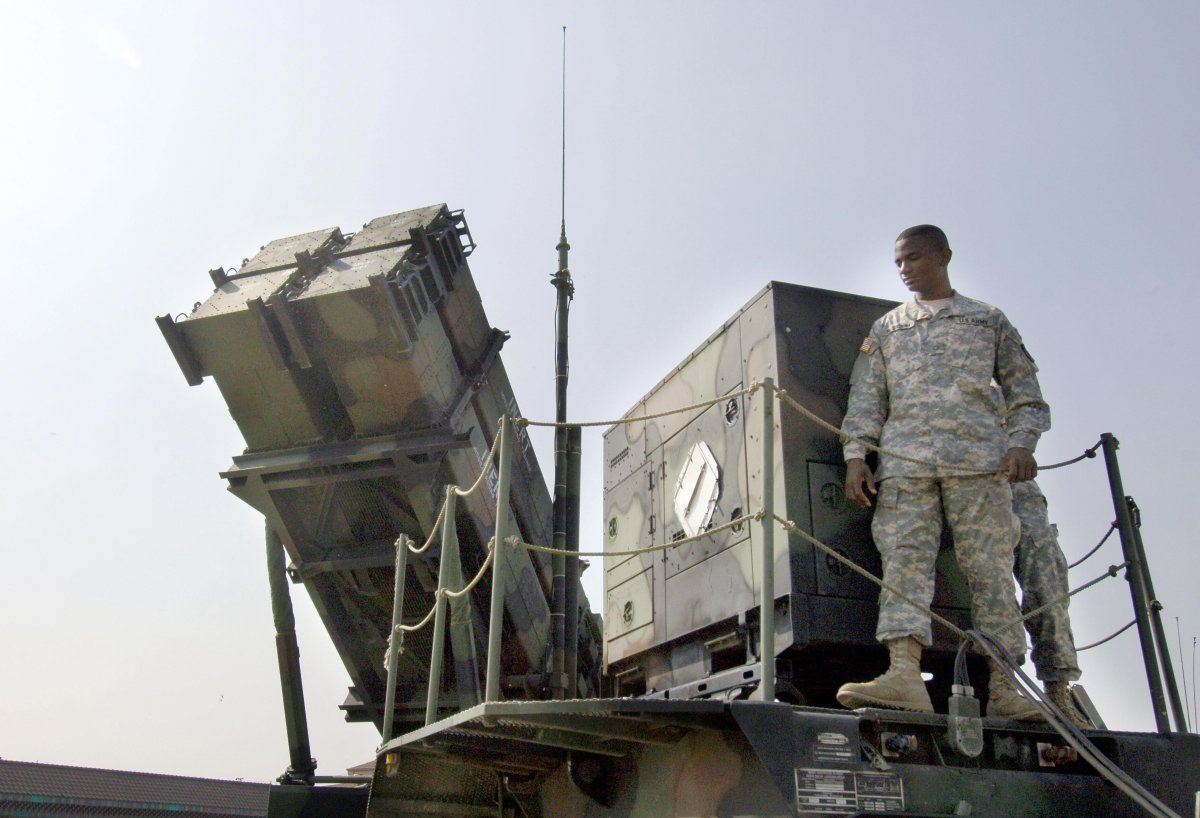American weapons suppliers have jacked up their prices amid increased demand because of the war in Ukraine, in a move that could hurt U.S. defense capabilities, officials have warned.
Claims of "price gouging"— when businesses inflate the prices of their products by more than is fair or reasonable — were made by former Pentagon insiders, now retired, who are sounding the alarm about the current military landscape.
They are warning that the number of weapons being sent to aid Ukraine in its battle against Russia "no matter the expense" is depleting stock that can't be easily replaced due to soaring prices. That comes at a time of increasing political tension with China over the issue of Taiwan.
Long-time contract negotiator at the Defense Department, Shay Assad, who is now retired after 40 years of service, spoke out on the CBS news show 60 Minutes, which conducted a six-month investigation.
"The gouging that takes place is unconscionable," Assad said. And the former insider, who previously worked for defense giant Raytheon, warned that the astronomical price increases are already having a harmful effect on the U.S. military.

"There's no doubt about it," he said. "You just can only buy so much, because you only have so much money. And that's why I say, is it really any different than not giving a Marine enough bullets to put in his clip? It's the same thing."
The Pentagon is overpaying for everything from radar, to missiles, to planes, even down to tiny parts such as nuts and bolts, he claimed. The program reported that a shoulder-fired stinger missile that cost $25,000 in 1991, now costs more than $400,000. Even taking inflation and improved technology into account, it remains an eye-watering increase.
Assad also showed 60 Minutes host Bill Whitaker an oil pressure switch that he claimed should cost $328, but which was actually sold for more than $10,000. When asked how the price discrepancy could have occurred, he replied: "Gouging. What else can account for it?"
He added: "No matter who they are, no matter what company it is, they need to be held accountable. And right now that accountability system is broken in the Department of Defense."
Assad gave two further examples:
- American companies Lockheed Martin and Boeing were found to be making almost a 40 percent profit when selling PAC-3 missiles to the U.S. government and its allies, Assad said. Over a seven-year period, the companies made hundreds of millions of dollars on the deals, according to Assad, who added: "Based on what they actually made, we would've received an entire year's worth of missiles for free." The program said Boeing had declined to comment, while Lockheed said the deal had been negotiated "in good faith." A new contract was negotiated, which has reportedly saved $550 million.
- Raytheon was also accused of making unacceptable profits from the Patriot air defense system by exaggerating the cost and time involved to build radar equipment. A Raytheon spokesperson told 60 Minutes that the company is working to "equitably resolve" the dispute, while CEO Gregory Hayes informed investors in 2021 that the company planned to set aside $290 million for probable liability.
A Lockheed Martin spokesperson told Newsweek: "Lockheed Martin constructively and ethically works with the U.S. government to support its national defense, intelligence, and international security cooperation objectives. We negotiate with the government in good faith on all our programs to meet its mission needs with the best and most effective technologies and systems in compliance with Federal Acquisition Regulations and all other applicable laws."
Newsweek reached out to Boeing and Raytheon by email for comment.

Assad claimed the practice is widespread and warned: "We have to have a financially healthy defense industrial base. We all want that. But what we don't want to do is get taken advantage of and hoodwinked [...] We have nowhere else to go. For many of these weapons that are being sent over to Ukraine right now, there's only one supplier. And the companies know it."
The situation has been exacerbated by the fact that defense companies, who had previously been rivals with competitive prices, were urged to consolidate to create a handful of giant firms in the 1990s. While subsequent cost-cutting measures saw government contract negotiator and overseer jobs cut.
Retired Air Force Lieutenant General Chris Bogdan, who oversaw the purchase of weapons systems during his career, said there was nothing wrong with companies making a good profit, "but taken to an extreme, industry may not make the best decisions in the best interests of the government."
He added he was also concerned that while companies sold physical products to the Pentagon, they retained the design's proprietary information needed to fix it — effectively meaning the Defense Department can't make its own repairs in some cases.
CBS also spoke to retired Pentagon auditor Mark Owen, who claimed: "It's not really a true capitalistic market because one company is telling you what's going to happen. [It's a] monopoly."
Newsweek reached out to the Department of Defense (DOD) by email for further information and comment. In a written response, a spokesperson said: "The Department strives to achieve prices that are fair to the taxpayer and provide our service members the world-class equipment and combat-capability they need to accomplish our demanding and diverse missions. DoD employs a number of strategies to negotiate fair and reasonable prices for the required products and services we use.
"Moreover, the Department works actively to expand competition across the Defense Industrial Base. Doing so is critical to better managing costs and gaining the best value for the taxpayer and our warfighters. As a result, the DoD has worked with Congress to strengthen its ability to obtain pricing data for commercial subcomponents and spare parts. In addition, DoD engages in active management of intellectual property and reverse engineering of selective parts in an effort to create new sources of supply for weapon system spare parts.
"We remain committed to expanding defense industrial base competition and to achieving the fairest price for taxpayers in delivering capabilities and services for our warfighters."
Update 5/23/22, 8:16 a.m. ET: This article was updated to include a statement by Lockheed Martin.
Update 5/22/23, 1:48 p.m. ET: This article was updated to include a statement by the Defense Department.
Uncommon Knowledge
Newsweek is committed to challenging conventional wisdom and finding connections in the search for common ground.
Newsweek is committed to challenging conventional wisdom and finding connections in the search for common ground.
About the writer
Get in touch with Chloe Mayer by emailing c.mayer@newsweek.com
To read how Newsweek uses AI as a newsroom tool, Click here.








